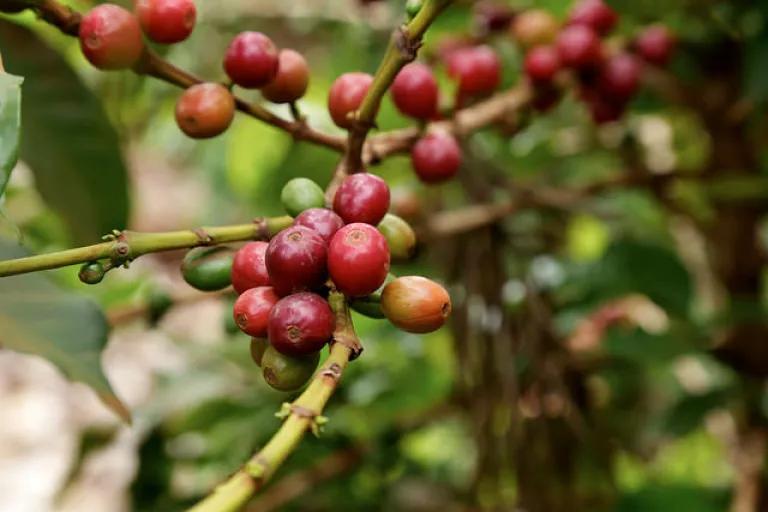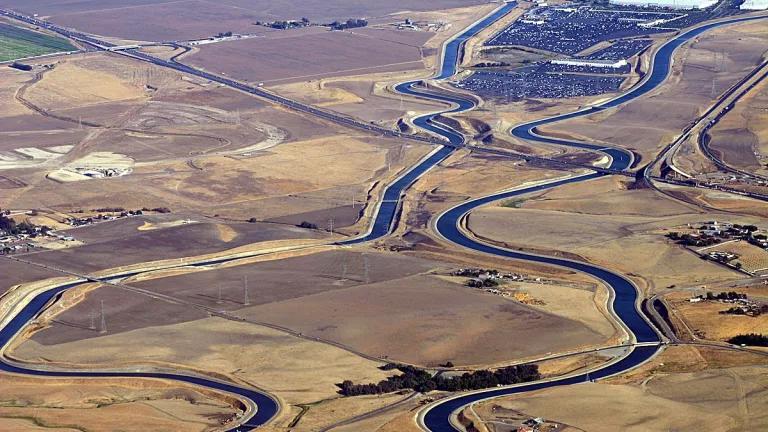
I didn't travel to Kenya earlier this year looking for climate change, or reasons why it is so critical to act now to stem this growing peril. But signs of it were clear when I visited Misalala Farm north of Nairobi, where coffee has been grown for decades.
The sprawling, lush farm is spread over 850 acres of rolling hills, and produces AA grade Arabica coffee - some of the highest value coffee in the world. But, increasingly, there are signs that could change.
"Global warming is affecting everything," says Alpha, a farmer and tour guide at the farm. From erratic weather patterns to changing rainfall and temperatures, climate change poses a big threat to Kenya's second largest industry - agriculture - and one of its biggest cash crops.
Wandering through Arabica coffee seedlings and pausing to emphasize a point every couple minutes, Alpha described the changes he's seen to coffee production in the past several decades, and eight at the ranch.
"The rains are coming earlier and lasting longer," he said, noting that the coffee cherries were ripening over prolonged periods of time, lengthening the time the farm must pay for labor to harvest the coffee. This increases operating costs and decreases profit.
Heavy rainfall in 2007-2008 caused Coffee Berry Disease, a fungus, which forced Kenya to cut production by 23 percent. Further, floods in 2006 affected 723,000 Kenyans.
On the opposite end of the spectrum, drought can also be an issue. "When there is drought, crops dry up," said Alpha; droughts in 1998-2000 cost the economy $2.8 billion in lost crops and livestock, forest fires, fisheries damage, and other impacts.
Climate change is expected to increase extreme weather and lead to more intense droughts, and more intense periods of rainfall. Other major droughts that impacted Kenya's economy occurred in 1998-2000, 2004-2005, and 2009.
The state of the weather is critical because nearly 75 percent of working Kenyans rely on agriculture for their livelihoods, which contributes to 30 percent of the country's GDP. Coffee production employs more than 150,000 farmers, producers, and laborers.
But a study from Stockholm Environment Institute estimates that climate change-related impacts could reduce Kenya's GDP by 2%. Profits from "green gold," how Alpha referred to the ripe, unroasted beans, could take a nosedive as extreme weather cuts into the crop's output.

Kenya's government has sponsored research to develop a new strain of coffee plant, Ruiru 11, which grows more quickly and whose higher yields may help some farmers deal with more extreme weather impacts on their crops.
However, without mitigation, climate change still poses a threat to the coffee industry, and Kenya's agriculture-based economy.

Two-year-old Arabica seedlings on the farm, which will take an additional several years to reach maturity.
While Kenya has developed a climate change action plan to respond to and mitigate the worst impacts of climate change, the global nature of the problem means that climate change must be addressed with leadership from developed countries.
President Obama's announcement of the Clean Power Plan last week demonstrates that the United States is ready to lead on climate change solutions. The first ever carbon standards on existing power plants will cut U.S. climate change-causing carbon emissions 32 percent from 2005 levels by 2030, while offering health and climate benefits equal to $54 billion in 2030 for Americans.
The Clean Power Plan demonstrates important U.S. leadership that can lead to strong international action, to achieve the cuts in carbon pollution necessary to avoid the worst impacts of climate change.
Putting this framework in place will help ensure the continued employment of the more than billion people working in agriculture globally, 150,000 workers in Kenya's coffee industry - and keep us sipping wonderful Kenyan coffee for decades to come.




